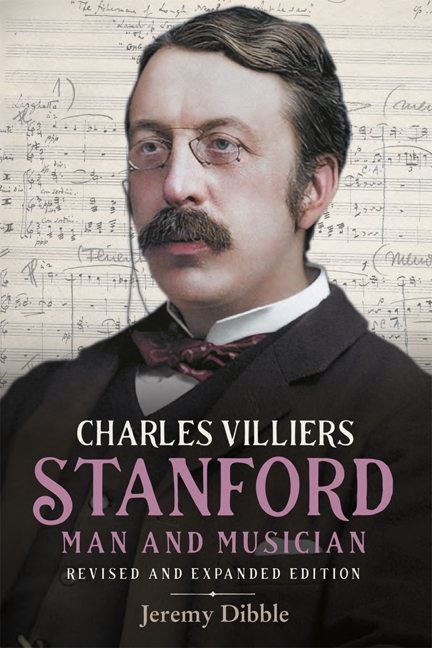Book contents
- Frontmatter
- Dedication
- Contents
- List of Illustrations
- List of Music Examples
- List of Analytical Tables
- Preface and Acknowledgements
- Supplementary Introduction to the Revised and Expanded Edition
- List of Sigla and Abbreviations
- I Early Influences and Impressions, 1852–70
- II Formative Years, 1870–87
- III Recognition, 1888–1901
- IV The New Generation, 1901–14
- V War and Decline, 1914–24
- Appendix: List of Works
- Select Bibliography
- Index of Works
- General Index
- Irish Musical Studies Previous volumes
11 - The War (1914–18)
Published online by Cambridge University Press: 12 May 2024
- Frontmatter
- Dedication
- Contents
- List of Illustrations
- List of Music Examples
- List of Analytical Tables
- Preface and Acknowledgements
- Supplementary Introduction to the Revised and Expanded Edition
- List of Sigla and Abbreviations
- I Early Influences and Impressions, 1852–70
- II Formative Years, 1870–87
- III Recognition, 1888–1901
- IV The New Generation, 1901–14
- V War and Decline, 1914–24
- Appendix: List of Works
- Select Bibliography
- Index of Works
- General Index
- Irish Musical Studies Previous volumes
Summary
The outbreak of war on 4 August 1914 and the publication of Stanford's autobiography, Pages from an Unwritten Diary, marked an important watershed in his life. The autobiography in many ways tacitly acknowledged that his career and position as one of Britain's foremost composers now no longer existed. Nevertheless, one of the book's many purposes was to record for posterity the author's role in the ‘English Musical Renaissance’ at a time when, Stanford sensed, Britain's new musical confidence in the music of Elgar, Delius, Grainger and Vaughan Williams appeared to turn its back on its late nineteenth-century heritage, a heritage Stanford was at pains to point out, enjoyed the pedigree of his communion with the continental giants. Pages from an Unwritten Diary also summarised most of Stanford's perennial campaigns and protests – his case for English church music, a national opera, a proper ethic for music publishing and the need for a proper musical infrastructure through state subvention – but the book also devoted many pages to his Irish background, the aim of which was not only to indulge in nostalgia, but to lay emphasis on a ‘golden age’ of Anglo-Irishmen who had enriched the British Empire in all walks of professional life. Stanford wanted to be part of this ‘brilliant’ generation whose power and influence he knew was about to disappear.
The action of the German Army and the Kaiser was a source of disbelief and exasperation to Stanford. To him, Germany had become artistically decadent, a predicament he blamed on unification in 1870 and the centralising of power in Berlin:
It's a pitifully diabolical time, and Billyelzebub is, I hope and trust, going to get his deserts. … No more Dresden and Leipzig for us, I fear. I saw this coming when I was last at Berlin, but everyone jeered at me for saying so. … There is a most curious parallel between modern German music and policy (and strategy). Piles of instruments with nothing much to say behind them.
I think it will eventually be the salvation of the real old Hans Sachs and Seb. Bach Germany, if it goes back to simplicity and is broken up into its old component … again. They may find out that the Deity is in Eisenach, Weimar and Bonn, and not in the barracks of Berlin.
- Type
- Chapter
- Information
- Charles Villiers StanfordMan and Musician, pp. 519 - 556Publisher: Boydell & BrewerPrint publication year: 2024

